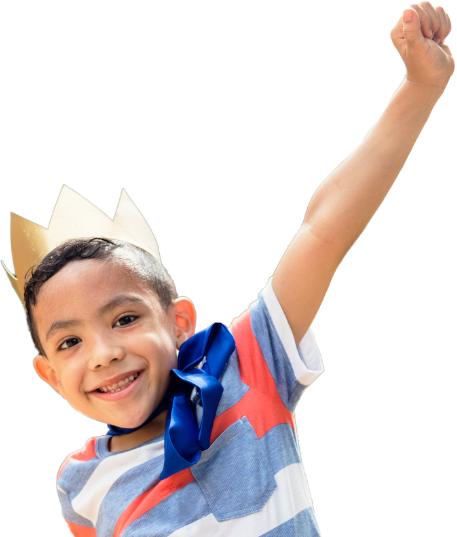Academic success is one of the biggest milestones parents have for their children. This is very understandable because doing well in school can help children grow into successful adults. This focus on schoolwork can start as early as preschool—long before kids first set foot in a classroom.
While learning numbers, letters and colors are important and valuable, becoming a good student is so much more than memorizing facts.
In order to be successful in school, children need to learn many other vital skills. These include:
• Social-Emotional Skills
These skills help your child learn how to interact with teachers and other students appropriately. With good social-emotional skills they can ask for the help they need, establish healthy relationships with friends, and deal with stress better.
This is a life skill they will take with them through their whole lives, and will help make them a successful student as well as a working adult.
• Healthy body, healthy mind
Learning how to eat healthy and take care of your body is just as vital as taking care of your mind. Learning what makes your body healthy and how to take care of it is a vital part of your child and will help them grow into a healthy adult.
Children who know how to take care of their bodies often benefit beyond general health. When they know they are doing their best, they may find their ability to love flaws in their body and to accept who they are a little easier.
• Exploring interests
Every child is different. One kid may love smashing a block tower, another takes great joy in building it. What part of the world interests you is an important aspect of your identity. A child that explores their interests is more likely to have a passion for those things, and to learn more about them.
The freedom to explore helps keep kids engaged and interested in the learning process, another vital skill.
• Critical thinking skills
Success in math and reading isn’t always about memorizing formulas. Solving a new problem needs a certain amount of logic and reasoning, to help you figure out what the solution might be.
Critical thinking skills start out in the playroom, figuring out why a bridge isn’t holding any weight or what happened to your paint when colors got mixed together. By figuring out problems and resolving them, you’re on your way to being able to think through a problem big or small.
Academics are important, but they are one link in a chain of other skills. If just this one aspect of the child is focused on at the expense of all the others, the result is an unbalanced child. A whole child philosophy aims at looking at the child as a whole and strengthening every link in the chain.
The more skills your child has to fall back on, the more likely they will be able to succeed. Supporting every aspect of a child’s health can make them into better, stronger children and successful adults.







